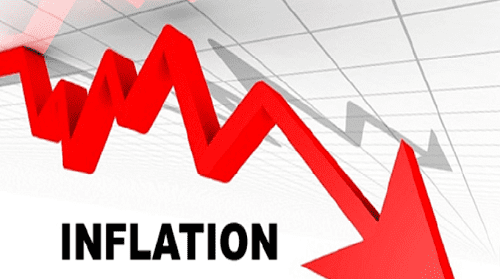In February 2025, Ghana’s annual inflation rate decreased marginally from 23.5% in January to 23.1% in February, the second consecutive month of fall.
According to the most recent data, which was made public by the Ghana Statistical Service (GSS), the decline was mostly caused by a 1.8 percentage point drop in food inflation.
During a press conference on March 5, 2025, Government Statistician Prof. Samuel Kobina Annim emphasized that food inflation had been steadily declining over the previous four months.
“In the last four months, you’ve seen a consistent decline in food inflation on a month-on-month basis, dropping by 2.0 percentage points between November 2024 and February 2025,” he stated.
Professor Annim pointed out that even with the decrease, February’s annual inflation rate was still the third-highest in the previous ten months, highlighting the nation’s ongoing economic difficulties.
In February 2025, food inflation was 28.1%, representing a 1.8% month-over-month decline from 28.3% in January. Nonetheless, a number of food categories continued to see price increases, such as fish and seafood (26.5%), ready-made meals and other food products (45.5%), cereals and cereal goods (38.6%), vegetables, tubers, cooking bananas, and pulses (28.1%).
Additionally, there was a little decrease in non-food inflation, which fell 0.9% from 19.2% in January to 18.8% in February.
The region most impacted by price rises was the Upper West, which had the highest regional inflation rate at 35.5%, with food inflation alone rising to 49.8%. With a food inflation rate of 48.6%, the Savannah Region came in second. The Volta Region, on the other hand, had the lowest inflation rate, at 18.1%, which reflected notable regional variations in price trends.
Despite the ongoing decrease in inflation, Ghana’s economic recovery is still in its early stages. In February 2025, the Consumer Price Index (CPI) was 255.9, up from 207.8 in February 2024. This indicates that overall price levels have increased by 23.1% year over year.
Between January and February 2025, the month-over-month inflation rate was 1.3%, down from 1.7% the month before.
Ghana’s economy is still in turmoil, and the country’s overall budgetary stability is being impacted by a faltering cocoa and gold industry. Policymakers caution that it would take longer for inflation to stabilize within the target band, as it is still significantly above the Bank of Ghana’s goal range of 6–10%.
Source: Ghanatodayonline.com
 Ghanatodayonline.com News, Politics, Health, Education & More
Ghanatodayonline.com News, Politics, Health, Education & More




